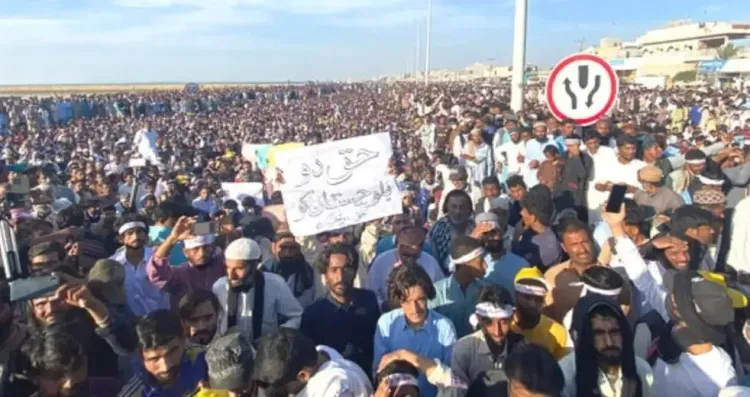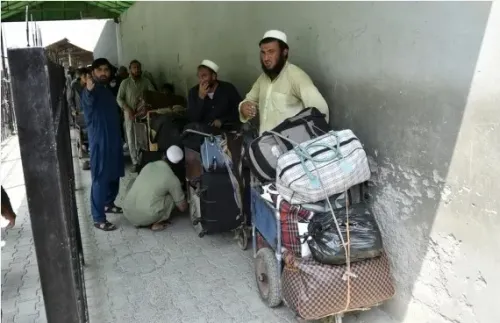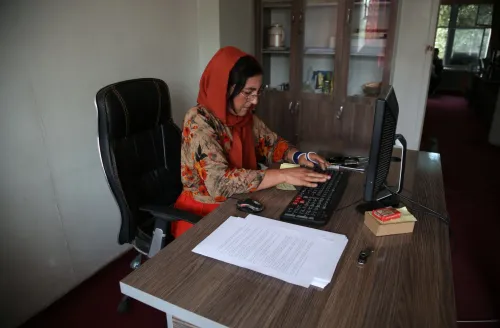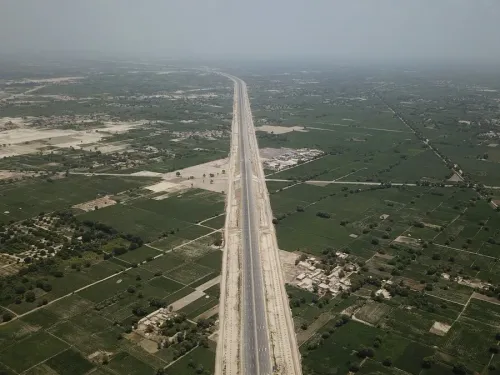Why is there Massive Civil Unrest in PoK Over Rising Prices and Political Discontent?

Synopsis
Key Takeaways
- Protests in PoK highlight deep economic grievances.
- AAC demands political reforms and economic relief.
- Authorities have responded with repression and communication blackouts.
- Protests reflect frustration over political marginalization.
- Urgent action is needed to prevent further instability.
Muzaffarabad, Oct 5 (NationPress) A wave of mass protests has erupted throughout Pakistan-occupied Kashmir (PoK), with thousands of citizens gathering under the emblem of the Awami Action Committee (AAC) to demand economic relief and political reforms.
As reported by the European Times, the AAC, an alliance of civil society organizations, has initiated an indefinite strike due to the surging costs of flour and electricity. They are also advocating for the elimination of 12 legislative seats designated for Kashmiri refugees residing in Pakistan.
The protests reveal profound socio-economic frustrations and a history of neglect from the Pakistani government. The European Times report emphasizes that although the region is resource-abundant and hosts vital infrastructure like the Mangla Dam, it suffers from exorbitant electricity tariffs, unstable power supply, and inflated prices for essential goods like flour.
In the past three days, at least 10 civilians have lost their lives, with over 100 injured, as clashes erupted between Pakistani security forces and demonstrators across PoK. In Dhirkot (Bagh district), four protesters were shot dead, with additional fatalities reported in Muzaffarabad, Dadyal (Mirpur), and Chamyati near Kohala. Stone-throwing demonstrators faced significant police action, leading to a burgeoning Long March toward Muzaffarabad in defiance of government oppression.
The protests have disrupted daily life, resulting in the closure of markets, schools, and public transportation. To suppress the uprising, officials imposed partial communication blackouts, including internet and mobile service disruptions, and deployed paramilitary forces in sensitive areas.
A primary demand of the AAC is the removal of the 12 Assembly seats allocated for externally displaced Kashmiris, a provision established under Pakistan’s 13th Amendment (2018). Locals argue that these seats allow Islamabad to dominate PoK’s political landscape while denying genuine residents effective representation. The AAC perceives this as a significant contributor to political marginalization, facilitating what they refer to as a “puppet” administration in Muzaffarabad.
“For over two years, the people of PoK have been grappling with overwhelming inflation, high power tariffs, and economic neglect,” the report stated. Despite generating surplus electricity, locals are subjected to exorbitant rates and daily outages, while flour prices remain artificially inflated without meaningful subsidies.
AAC leader Shaukat Nawaz Mir emphasized that the movement is not against any institution but aims for the restoration of fundamental rights denied for over 70 years. “Enough is enough,” he proclaimed publicly, reflecting the region’s escalating discontent and readiness to challenge Pakistan’s authority.
This recent surge in protests highlights the widening gulf between PoK residents and Islamabad, with critics warning of increasing instability unless significant economic relief and political reforms are implemented. Observers assert that the Pakistani establishment’s reliance on repression rather than dialogue has exacerbated tensions in this strategically important region.
The indefinite strike acts as a wake-up call for Pakistan’s leadership, demanding justice, equitable governance, and an end to exploitative policies in PoK. Without immediate intervention, the unrest threatens to escalate into a more profound crisis with wider regional ramifications.
The report stresses that the crisis in PoK necessitates urgent attention, not only for humanitarian reasons but also to avert further deterioration of governance and stability.










